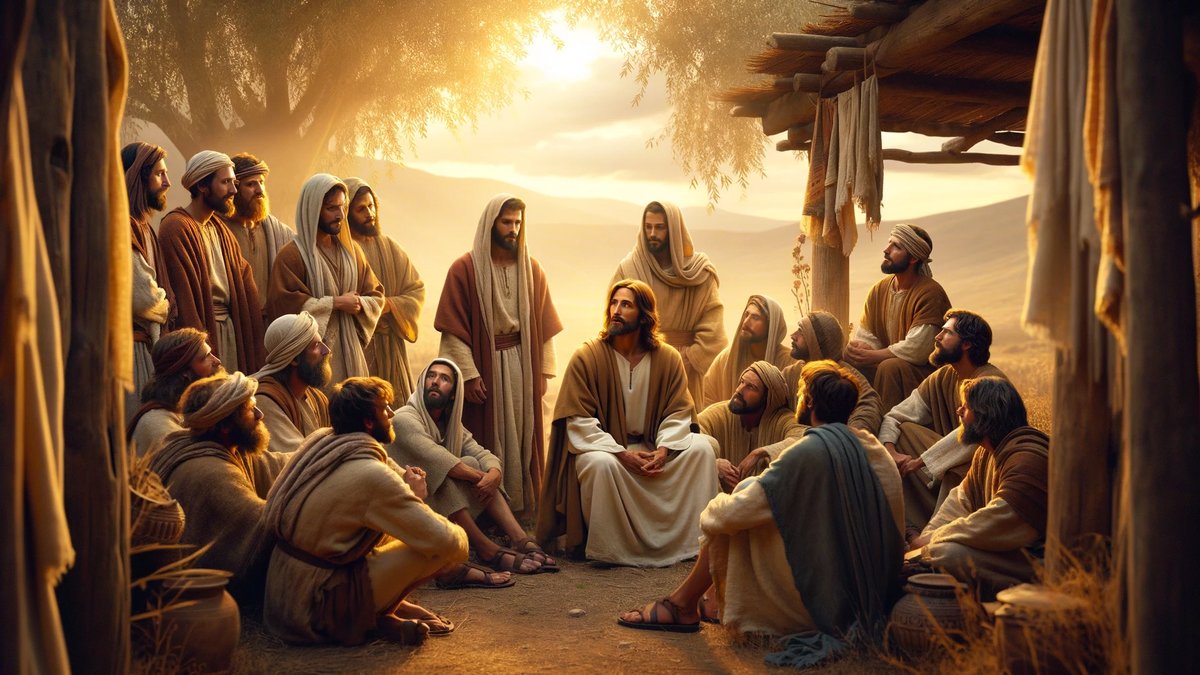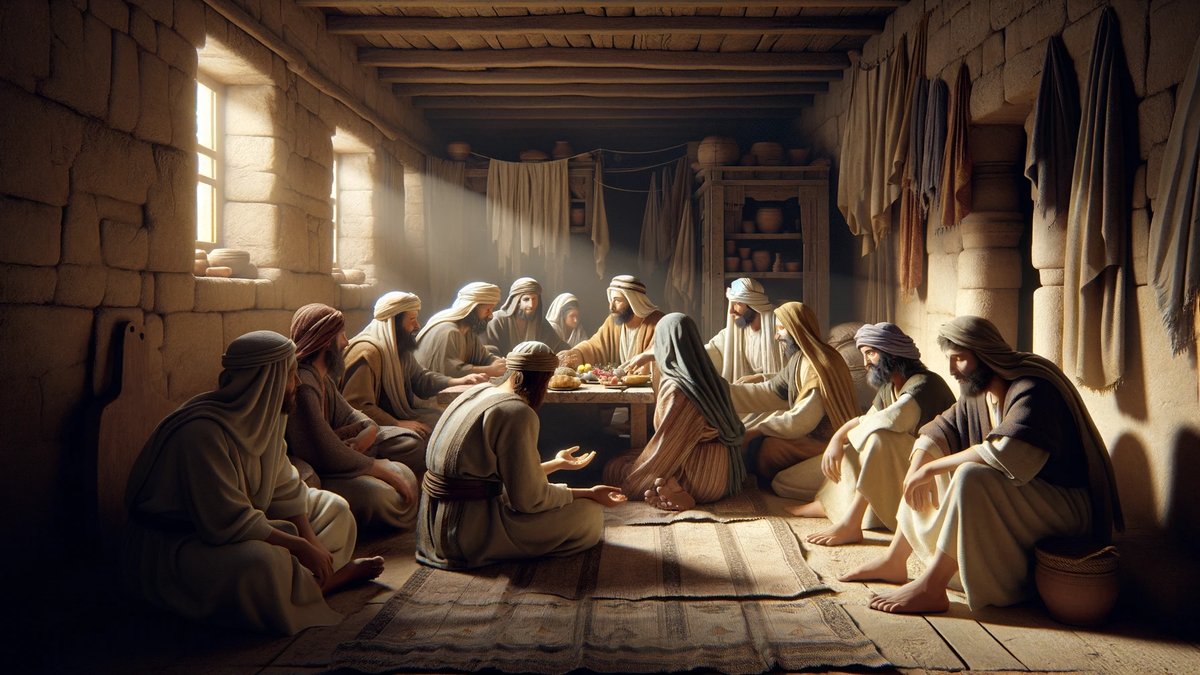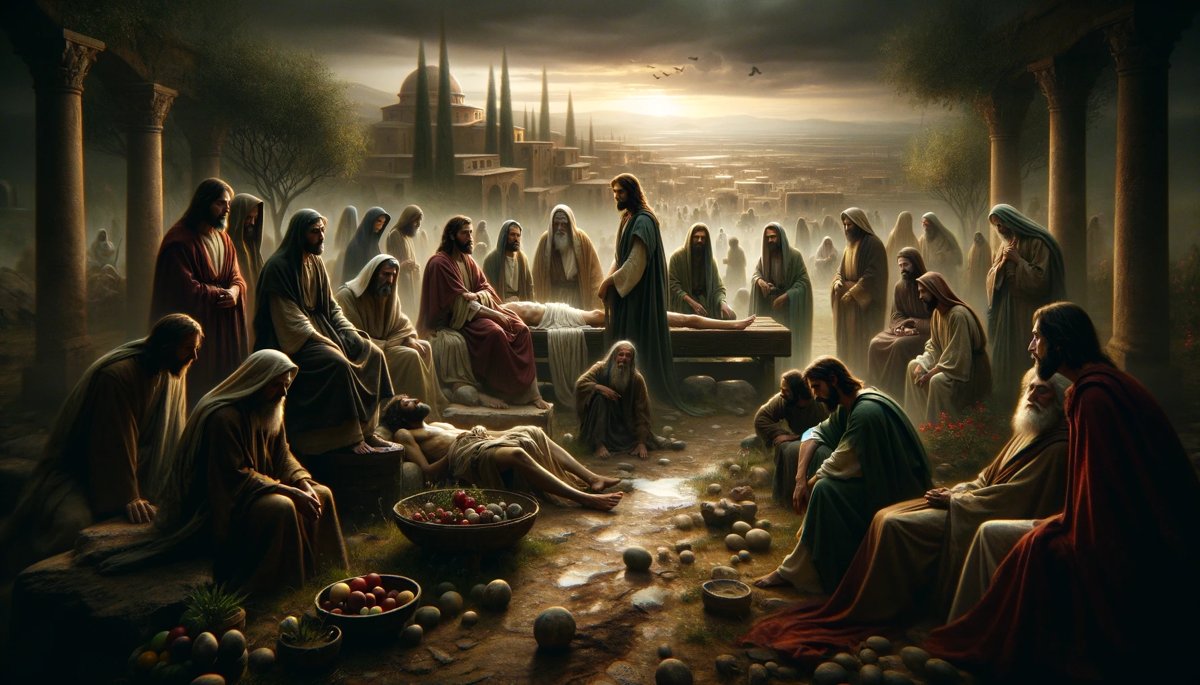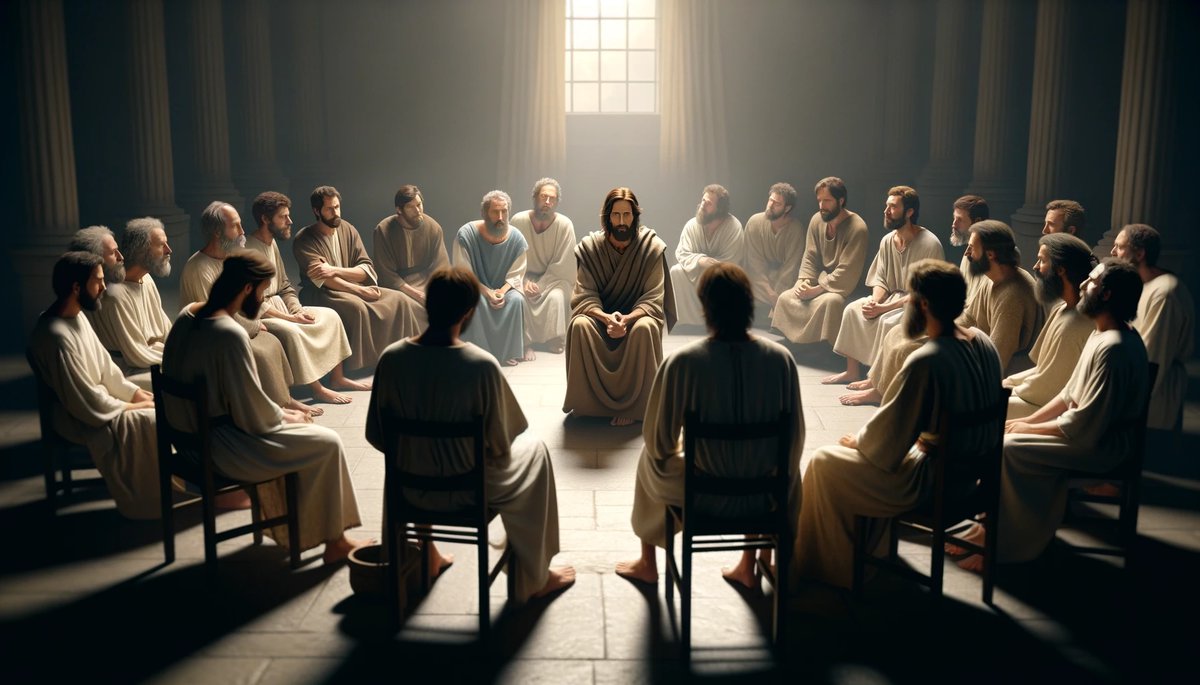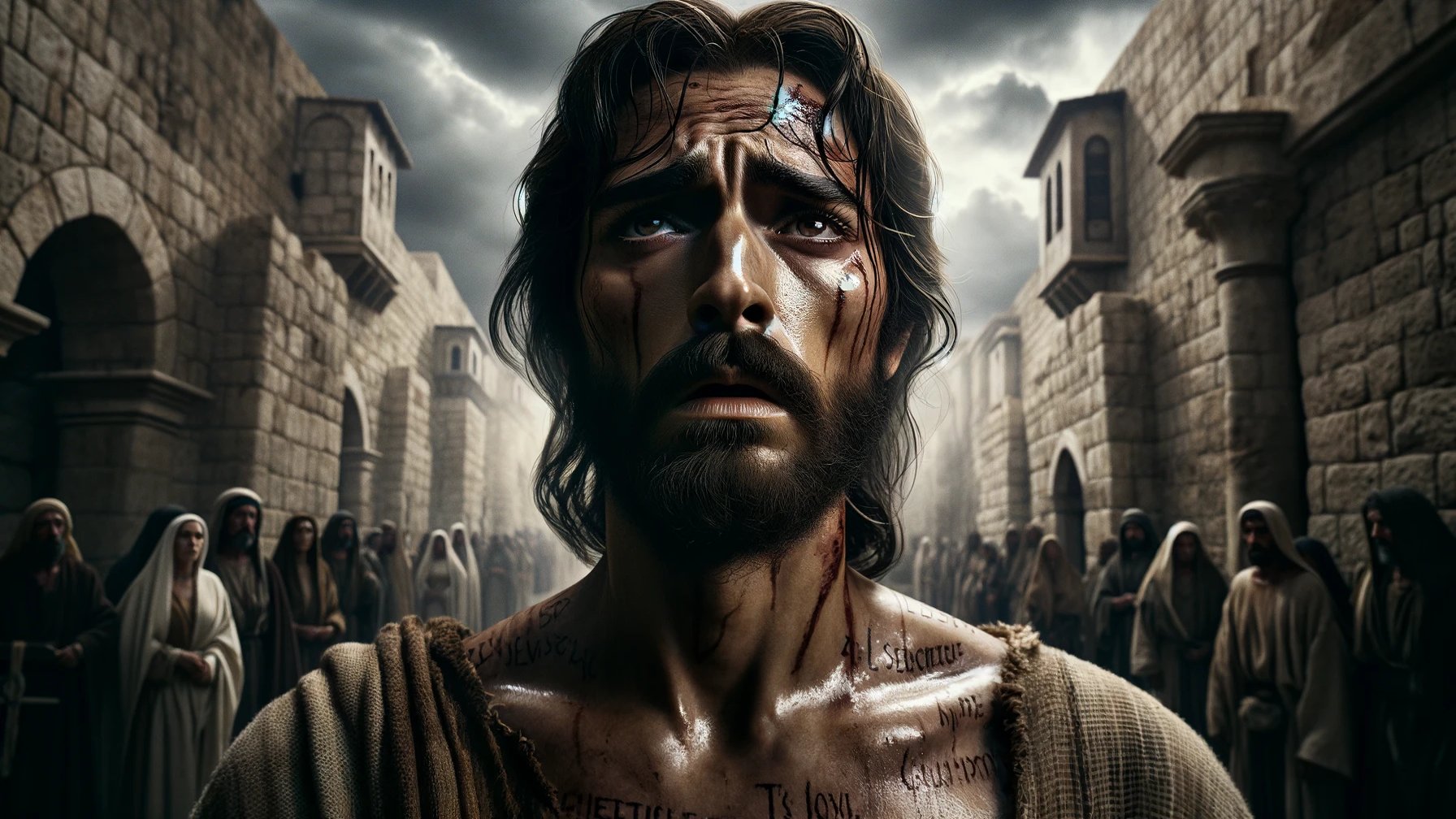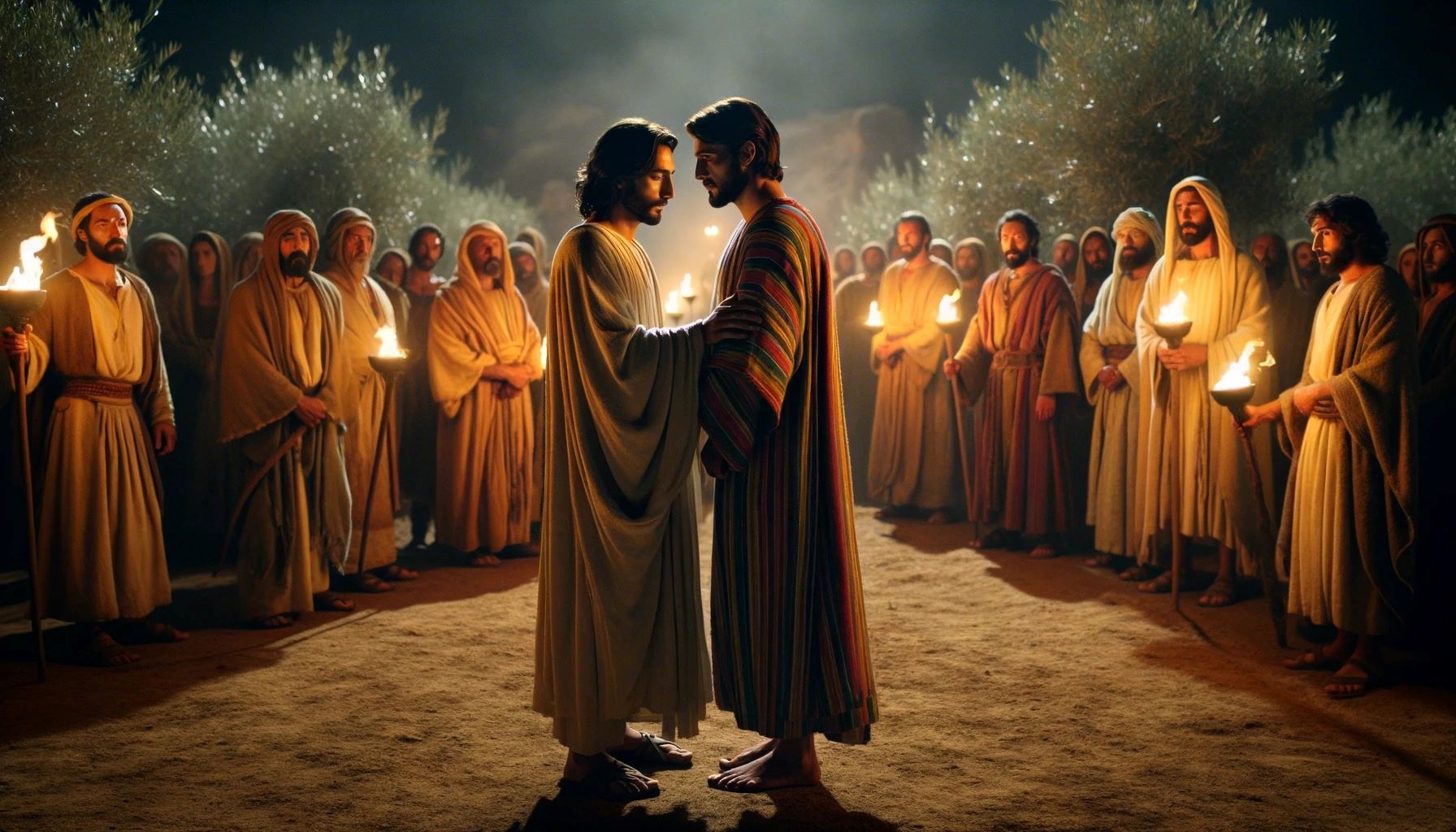Home>Christian Videos>Bible Stories>Who Is The First Disciple Of Jesus Christ
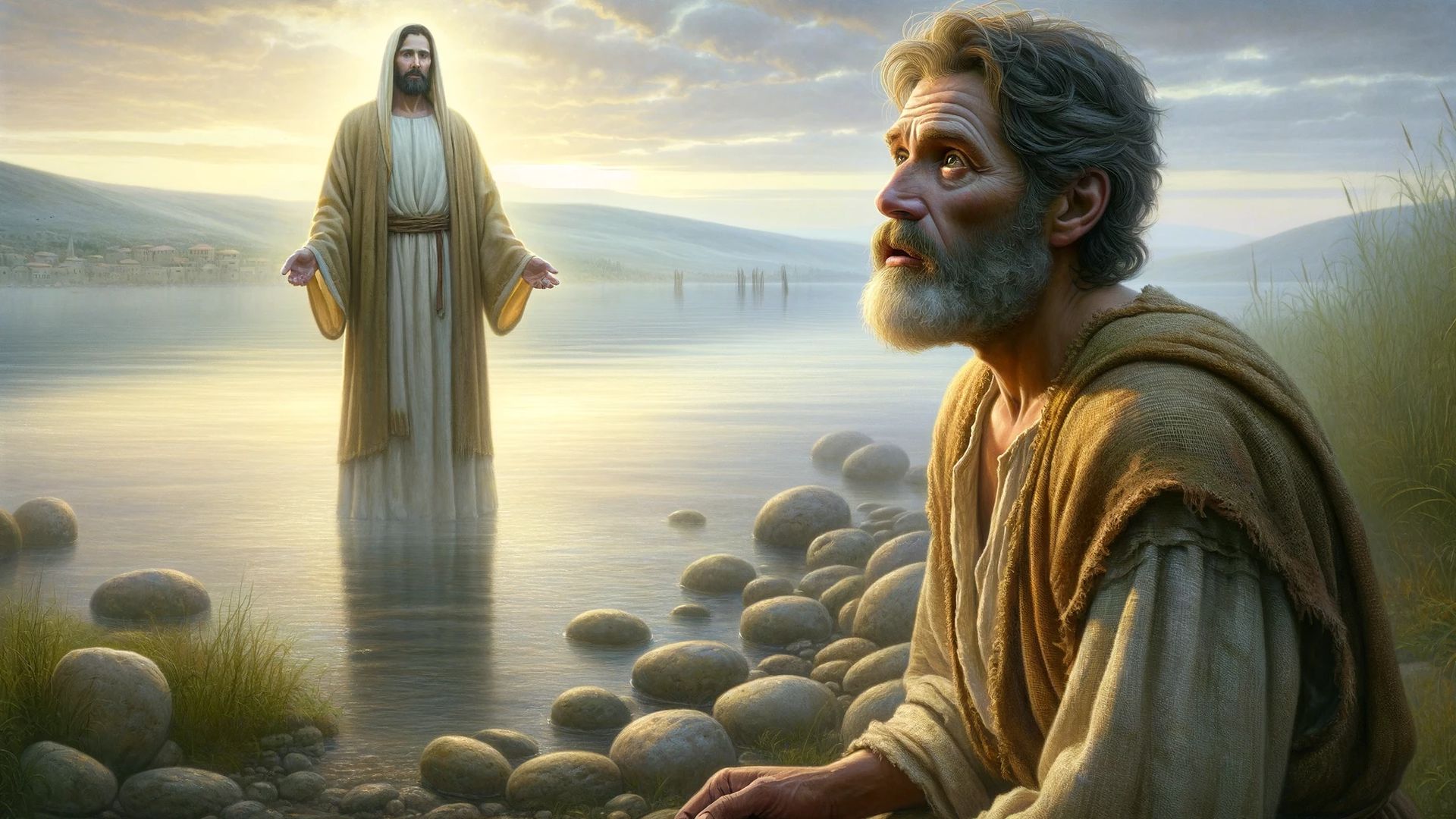

Bible Stories
Who Is The First Disciple Of Jesus Christ
Published: March 1, 2024
Jason DeRose, Managing Editor at Christian.net, uses his expertise in religion and journalism to deepen understanding of faith's societal impacts. His editorial leadership, coupled with a strong academic background, enriches the platform’s diverse content, earning him recognition in both journalism and religious circles.
Learn about the first disciple of Jesus Christ and his significance in the Bible stories. Explore the role and impact of this key figure in Christian history.
(Many of the links in this article redirect to a specific reviewed product. Your purchase of these products through affiliate links helps to generate commission for Christian.net, at no extra cost. Learn more)
Table of Contents
Introduction
Who is the first disciple of Jesus Christ? This question has intrigued scholars and believers for centuries. The identity of the first disciple holds significant importance in Christian history and theology. In this article, we will explore the roles of Peter and Andrew, two prominent figures in the New Testament, to uncover the answer to this age-old question. By delving into the biblical narratives and historical context, we can gain a deeper understanding of the first disciple's identity and the impact of their role in the early Christian movement.
Read more: Who Are The 12 Disciples Of Jesus Christ
The Role of Peter
-
Peter's Leadership: Peter, also known as Simon Peter, was one of the twelve apostles chosen by Jesus. He held a prominent position among the disciples and often acted as their spokesperson. His leadership role is evident in various instances throughout the New Testament, where he is depicted as taking charge and making decisions on behalf of the group.
-
Confession of Faith: One of the most significant moments in Peter's role as a disciple is his confession of faith in Jesus as the Christ, the Son of the living God. This pivotal declaration, as recorded in the Gospel of Matthew, showcases Peter's deep understanding of Jesus' identity and mission. Jesus responds to Peter, affirming the foundational nature of this confession and bestowing upon him the name "Peter," which means "rock."
-
Commissioned by Jesus: In the Gospel of John, Peter's role as a disciple is further emphasized when Jesus entrusts him with the task of shepherding His followers. This commissioning highlights Peter's future role in leading and guiding the early Christian community after Jesus' departure.
-
Pillar of the Church: Early Christian tradition and historical accounts also underscore Peter's influential role in the establishment of the early Church. He is often regarded as a key figure in spreading the teachings of Jesus and laying the foundation for the Christian community.
-
Martyrdom and Legacy: Peter's unwavering commitment to his faith and his eventual martyrdom solidified his legacy as a foundational figure in Christianity. His steadfastness in the face of persecution and his contributions to the spread of the Christian message cemented his place as a revered saint in Christian tradition.
-
Significance in Christian Tradition: The enduring significance of Peter's role as the "rock" upon which the Church is built has reverberated throughout Christian history. His leadership, faith, and eventual martyrdom have made him a symbol of steadfastness and unwavering devotion to the Christian faith.
Peter's pivotal role as a disciple of Jesus Christ is evident in his leadership, unwavering faith, and enduring legacy within Christian tradition. His contributions to the early Christian movement and the establishment of the Church have solidified his place as a foundational figure in Christian history.
The Calling of Andrew
-
Encounter with Jesus: Andrew, the brother of Simon Peter, was a fisherman by trade. The Gospels recount the pivotal moment when Andrew and another disciple, likely John, encountered Jesus. This encounter marked the beginning of Andrew's journey as a disciple of Christ.
-
Response to the Call: When Jesus approached Andrew and his companion, He extended a simple yet profound invitation: "Come, follow me, and I will make you fishers of men." Andrew's immediate response to this call exemplifies his readiness to leave behind his former life and embark on a new path as a follower of Jesus.
-
Bringing Others to Jesus: Andrew's calling extended beyond his personal decision to follow Christ. He also played a significant role in bringing others to Jesus. In the Gospel of John, Andrew is credited with introducing his brother, Simon Peter, to Jesus, thus initiating Peter's own journey as a disciple.
-
Faithful Service: Throughout the Gospels, Andrew is depicted as a devoted and faithful disciple, accompanying Jesus during His ministry and witnessing the profound teachings and miracles performed by the Messiah. His commitment to following Jesus and his willingness to share the message of Christ with others exemplify his role as an early evangelist.
-
Legacy of Witness: Andrew's dedicated service and his pivotal role in bringing others to Jesus underscore his significance as one of the earliest disciples. His legacy as a faithful follower and a catalyst for others' encounters with Christ solidifies his place in Christian tradition.
-
Patron Saint and Symbolism: Andrew's unwavering commitment to his faith and his eventual martyrdom have led to his veneration as a patron saint in various Christian traditions. He is often revered as the patron saint of fishermen and is celebrated for his role in spreading the message of Christ.
Andrew's response to the call of Jesus, his role in bringing others to the Messiah, and his faithful service as a disciple highlight his profound impact on the early Christian movement. His legacy as a devoted follower and evangelist continues to inspire believers and exemplify the transformative power of answering the call to follow Christ.
The Identity of the First Disciple
The question of who holds the distinction of being the first disciple of Jesus Christ has been a subject of scholarly debate and theological inquiry. While the New Testament accounts provide insights into the early followers of Jesus, determining the precise identity of the first disciple requires careful examination of the biblical narratives and historical context.
1. Andrew: A Contender for the Title
Andrew, the brother of Simon Peter, emerges as a prominent figure in the quest to identify the first disciple. His pivotal role in bringing his brother to Jesus and his immediate response to the call to follow the Messiah position him as a leading candidate for the title of the first disciple. Andrew's proactive engagement with Jesus and his subsequent introduction of Peter to the Christ highlight his early involvement in the circle of Jesus' followers.
2. Peter: The Rock of the Church
Peter's influential role among the disciples and his significant contributions to the early Christian movement also warrant consideration in the discussion of the first disciple. His leadership, unwavering faith, and pivotal confession of Jesus as the Christ underscore his foundational position within the group of followers. Additionally, Jesus' commissioning of Peter to shepherd His followers further emphasizes Peter's central role in the formation of the early Christian community.
3. The Collective Nature of Discipleship
While the individual roles of Andrew and Peter are noteworthy, it is essential to recognize the collective nature of discipleship within the early Christian community. The Gospels depict a group of individuals who responded to Jesus' call, journeyed alongside Him, and played distinct yet interconnected roles in the unfolding narrative of the Gospel. The synergy and collaboration among the disciples underscore the communal aspect of their shared commitment to following Jesus.
4. Unveiling the First Disciple
In the quest to unveil the identity of the first disciple, it is crucial to acknowledge the interconnectedness of Andrew and Peter's roles within the broader framework of discipleship. Rather than viewing their contributions in isolation, recognizing the complementary nature of their actions and their shared commitment to Jesus provides a more holistic understanding of the early followers' collective dedication to the Messiah.
5. The Significance of the First Disciple
Ultimately, the quest to identify the first disciple of Jesus Christ extends beyond singling out an individual and delves into the profound impact of discipleship within the Christian tradition. Whether Andrew, Peter, or another early follower holds the distinction, their collective dedication and unwavering commitment to Jesus exemplify the transformative power of answering the call to follow the Messiah.
The identity of the first disciple remains a subject of scholarly inquiry and theological reflection, inviting believers to explore the interconnected roles of Andrew, Peter, and the early followers within the rich tapestry of Christian discipleship.
Read more: Who Were The 12 Disciples Of Jesus?
Conclusion
The quest to identify the first disciple of Jesus Christ has sparked scholarly debate and theological inquiry, with Andrew and Peter emerging as prominent figures in the discussion. Andrew's proactive response to Jesus' call and his pivotal role in bringing his brother, Peter, to the Messiah position him as a leading contender for the title of the first disciple. On the other hand, Peter's influential leadership, unwavering faith, and commissioning by Jesus underscore his foundational position within the group of followers. However, it is essential to recognize the collective nature of discipleship within the early Christian community, emphasizing the interconnected roles of Andrew, Peter, and the other early followers. The significance of the first disciple extends beyond singling out an individual and delves into the profound impact of discipleship within the Christian tradition, exemplifying the transformative power of answering the call to follow the Messiah. Ultimately, the interconnectedness of Andrew and Peter's roles within the broader framework of discipleship invites believers to explore the rich tapestry of Christian discipleship and the collective dedication of the early followers to Jesus.


